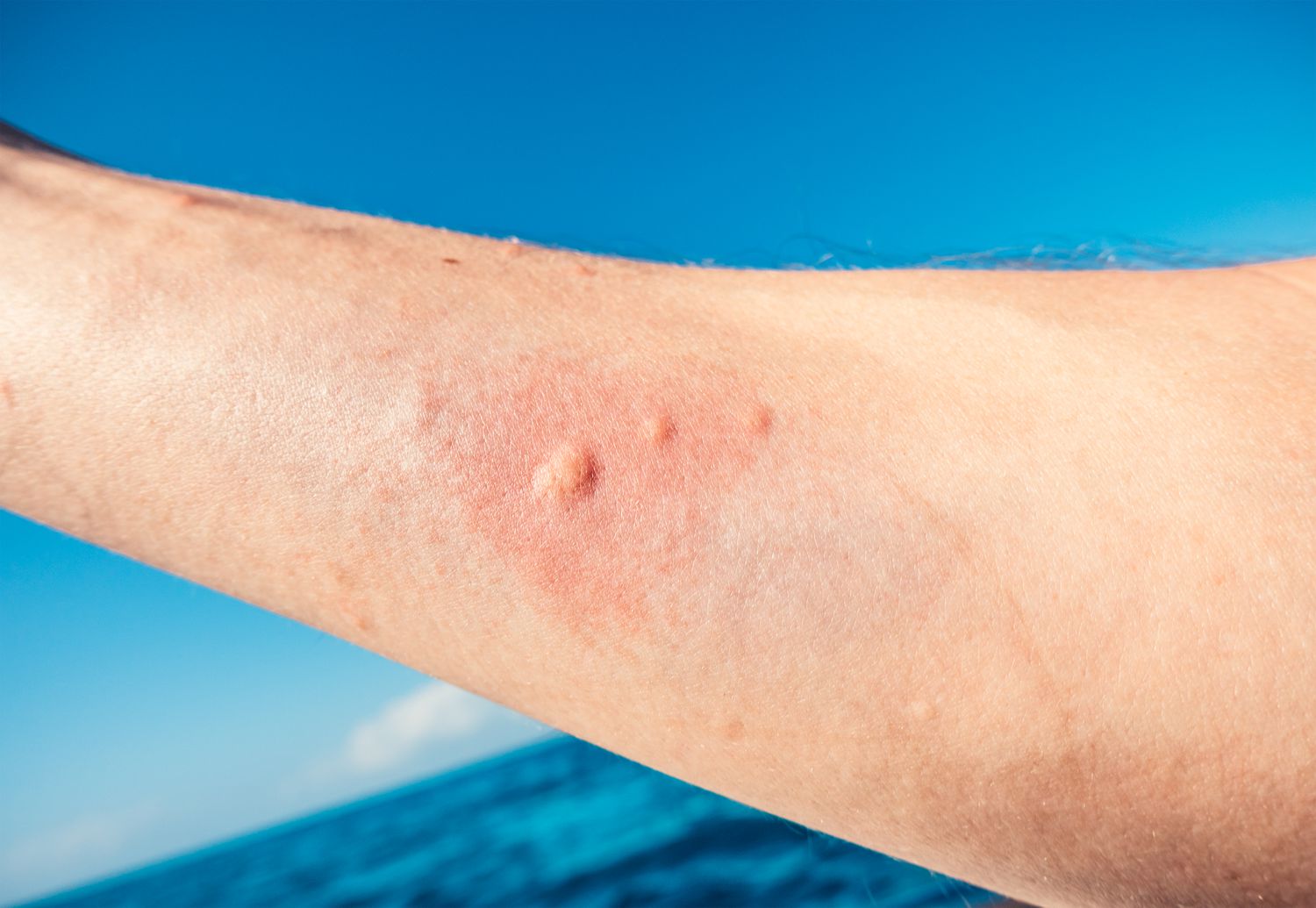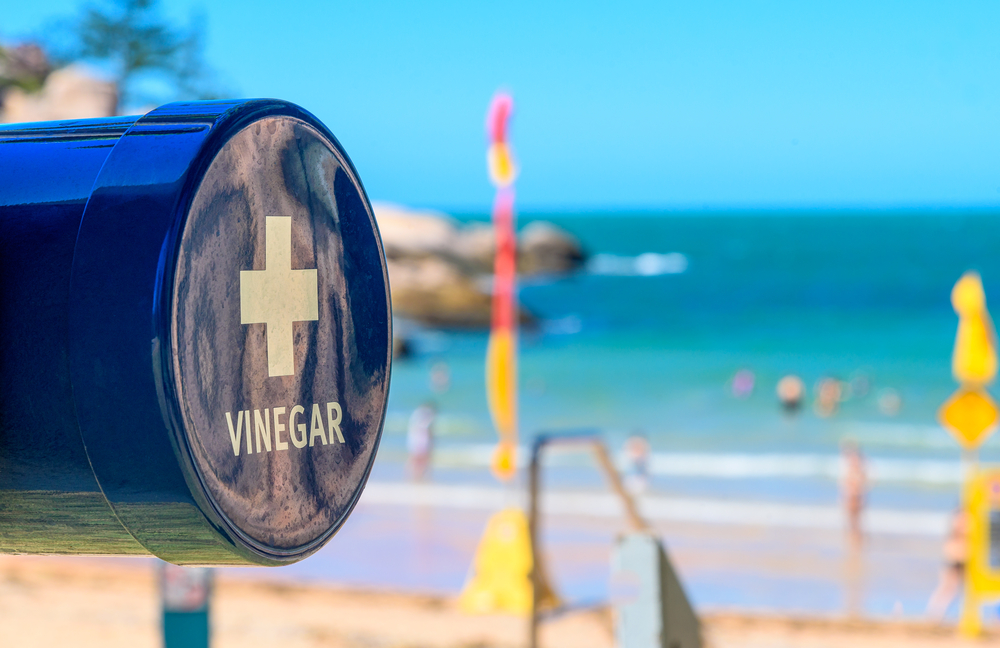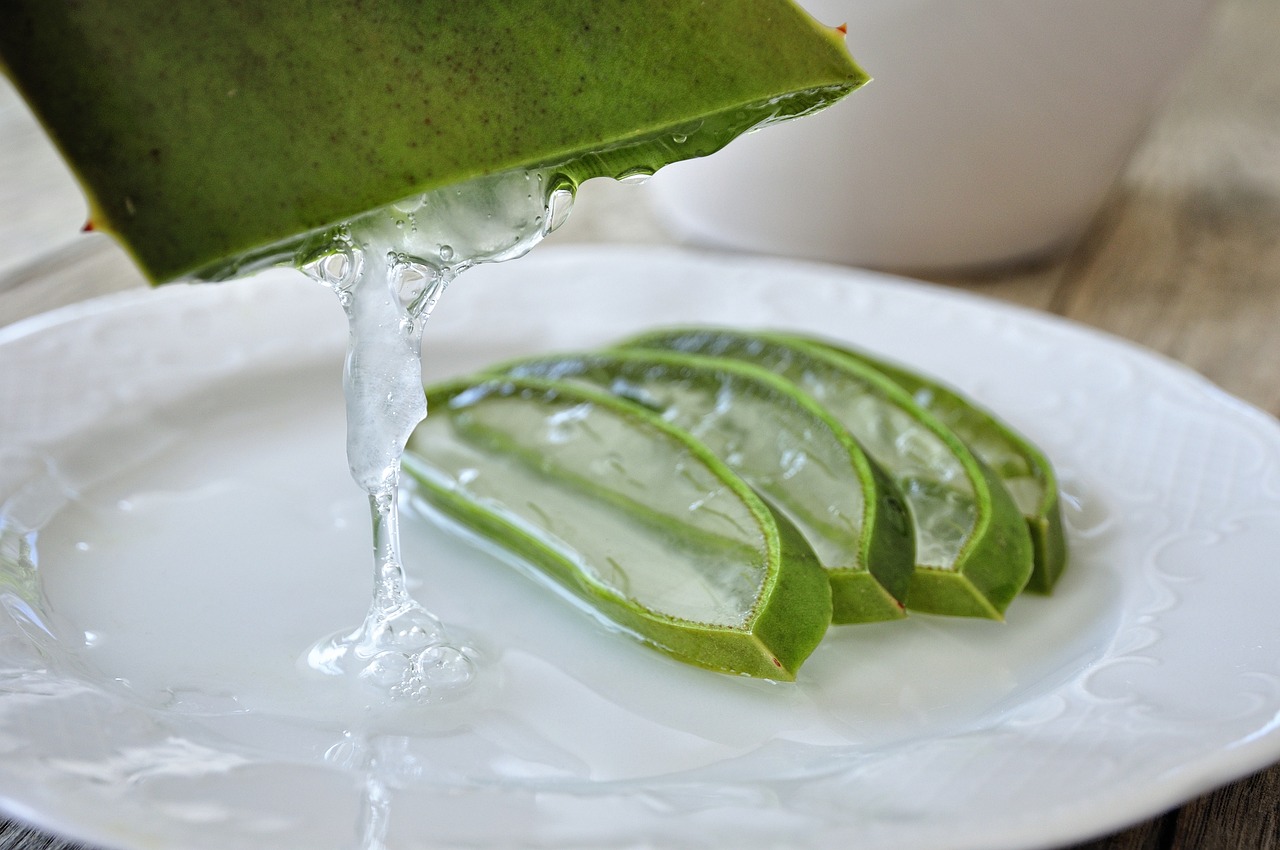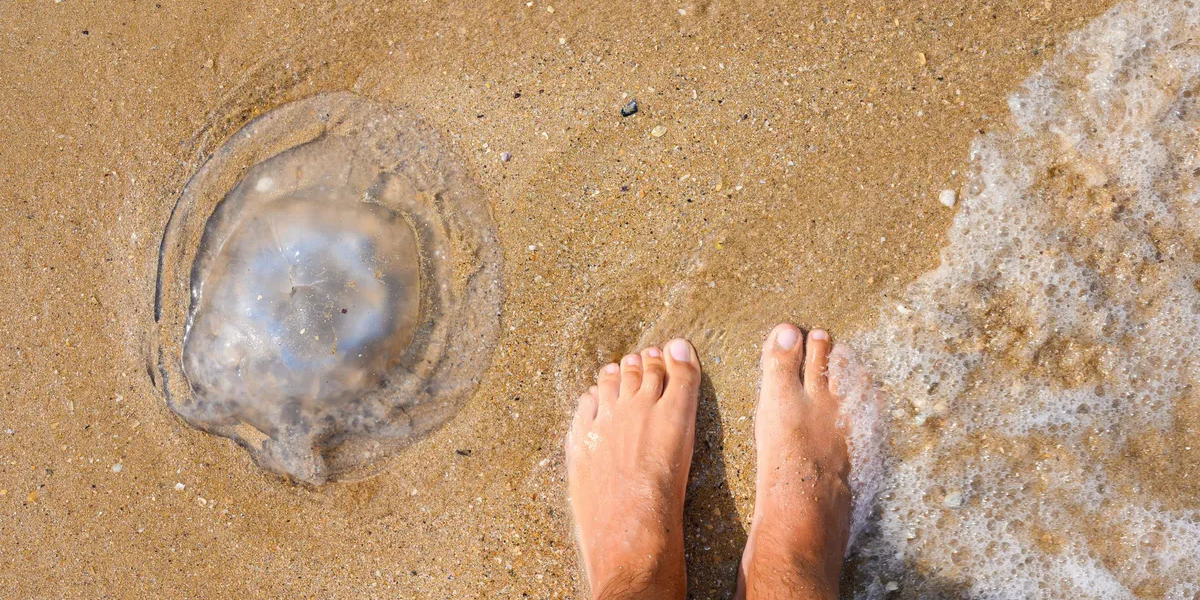The proliferation of jellyfish along our coastlines has become a natural phenomenon, driven by factors such as relatively high sea water temperatures, sea currents, and loss of biodiversity. These gelatinous creatures tend to make their presence known during spring and much of the summer, sometimes appearing en masse. Unfortunately for beachgoers, there is no foolproof method to avoid encountering jellyfish in bathing areas, as they inhabit these waters as their natural habitat.
Jellyfish, being marine animals, possess the ability to inflict painful and potentially dangerous stings upon humans.
Prevention
It is crucial for those who frequently swim in the sea to be knowledgeable about preventing and treating jellyfish stings. To that end, here are some tips that can help you steer clear of these stinging creatures:
-
Avoid jellyfish areas: Before engaging in swimming or water sports, it is advisable to gather information about the presence of jellyfish in the area. Steer clear of locations where recent jellyfish sightings have been reported.
-
Wear protective clothing: Donning protective gear such as wetsuits, leggings, or swim t-shirts can provide a physical barrier against jellyfish stings, safeguarding your skin.
-
Apply sunscreen: By applying sunscreen, you can add an extra layer of protection against jellyfish stings. When a jellyfish comes into contact with skin protected by sunscreen, it does not trigger the stinging cells, reducing the likelihood of a reaction.
-
Opting for an odorless, neutral-colored sunscreen can also help repel jellyfish, as they are attracted to smells and bright colors.
-
Avoid touching jellyfish: If you spot a jellyfish floating nearby, it is important to keep your distance and refrain from touching its tentacles. Moving away gently without any physical contact is the best course of action.
Symptoms of a jellyfish sting
Jellyfish stings can cause various symptoms, ranging from mild to severe, depending on the individual’s allergic reaction and the severity of the sting. The most common symptoms associated with jellyfish stings include
- Pain
- Burn
- Redness
- Itching
- Nausea
- Vomiting
- Fever
- Shortness of breath
- Dizziness

Should you experience any of these symptoms following a jellyfish sting, it is essential to seek proper medical treatment from a doctor or pharmacist.
Natural remedies to relieve jellyfish stings
In the first place, the affected area should not be rubbed, and if any tentacles remain, they should be removed with tweezers, a plastic card or squeezed with salt water.
It is very important not to apply soft or hot water, pressure bandages, ammonia, alcohol or urine, or rub with towels, sand or anything else that may cause further injury. the skin.
For mild stings without a severe allergic reaction, many natural remedies can be used to relieve aches and pains. Here are some of the most effective:
Seawater
Immediately rinsing the affected area with seawater is the first step when stung by a jellyfish. Seawater can neutralize toxins, offering relief from pain and inflammation. It is important to avoid using soft water, as it may stimulate toxin release and worsen the symptoms.
White vinegar
Vinegar is a commonly used natural remedy for jellyfish stings. It helps neutralize toxins and prevent further release into the skin. To use vinegar, pour a small amount onto a cloth or paper towel and gently dab the affected area for at least 30 seconds.

Baking soda
Another effective natural remedy is baking soda. It helps neutralize toxins and provides relief from pain and inflammation. To utilize baking soda, create a paste by mixing a small amount with water. Apply the paste to the affected area and allow it to dry before rinsing it off with seawater.
Lemon juice
Lemon juice, due to its acidic properties, can assist in neutralizing toxins and relieving jellyfish sting symptoms. Apply lemon juice directly to the affected area and allow it to dry before rinsing with seawater.
The aloe vera

Aloe vera, a popular herbal remedy, can also provide relief from jellyfish stings. Applying aloe vera gel directly to the affected area can help reduce the symptoms and provide a soothing effect.
Jellyfish stings are an unfortunate reality for many people during the summer months. It is important to take preventive measures and be aware of natural remedies that can offer relief. By avoiding jellyfish-prone areas, wearing protective clothing, and applying sunscreen, you can minimize the risk of getting stung. However, if you do encounter a jellyfish and suffer a sting, knowing how to handle the situation is crucial.
However, it is important to note that natural remedies may not be sufficient for severe jellyfish stings or cases where an individual exhibits signs of an allergic reaction. In such situations, seeking medical attention from a doctor or pharmacist is crucial to ensure proper treatment and prevent complications.
